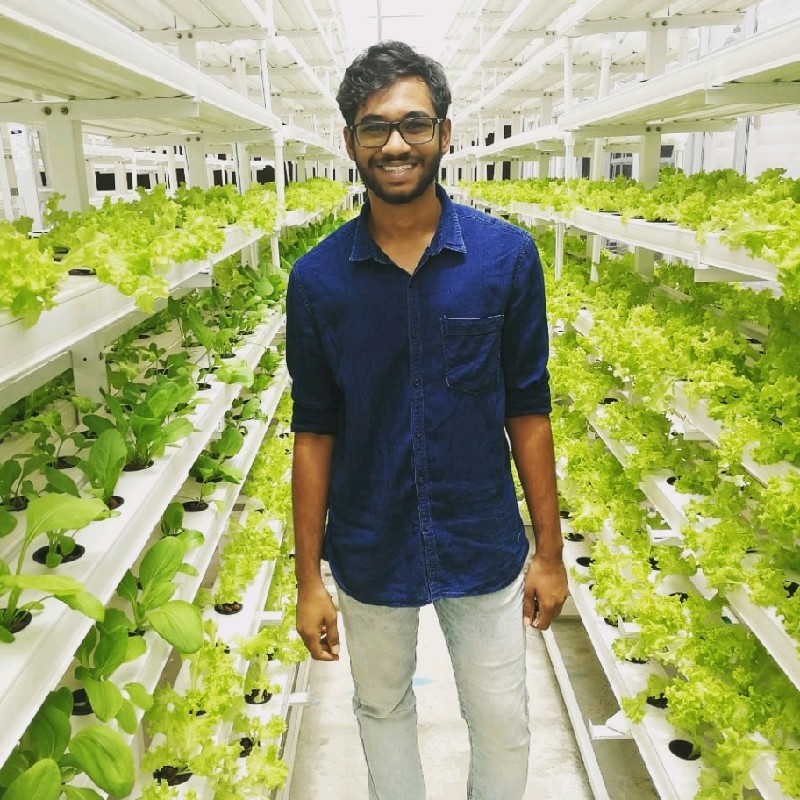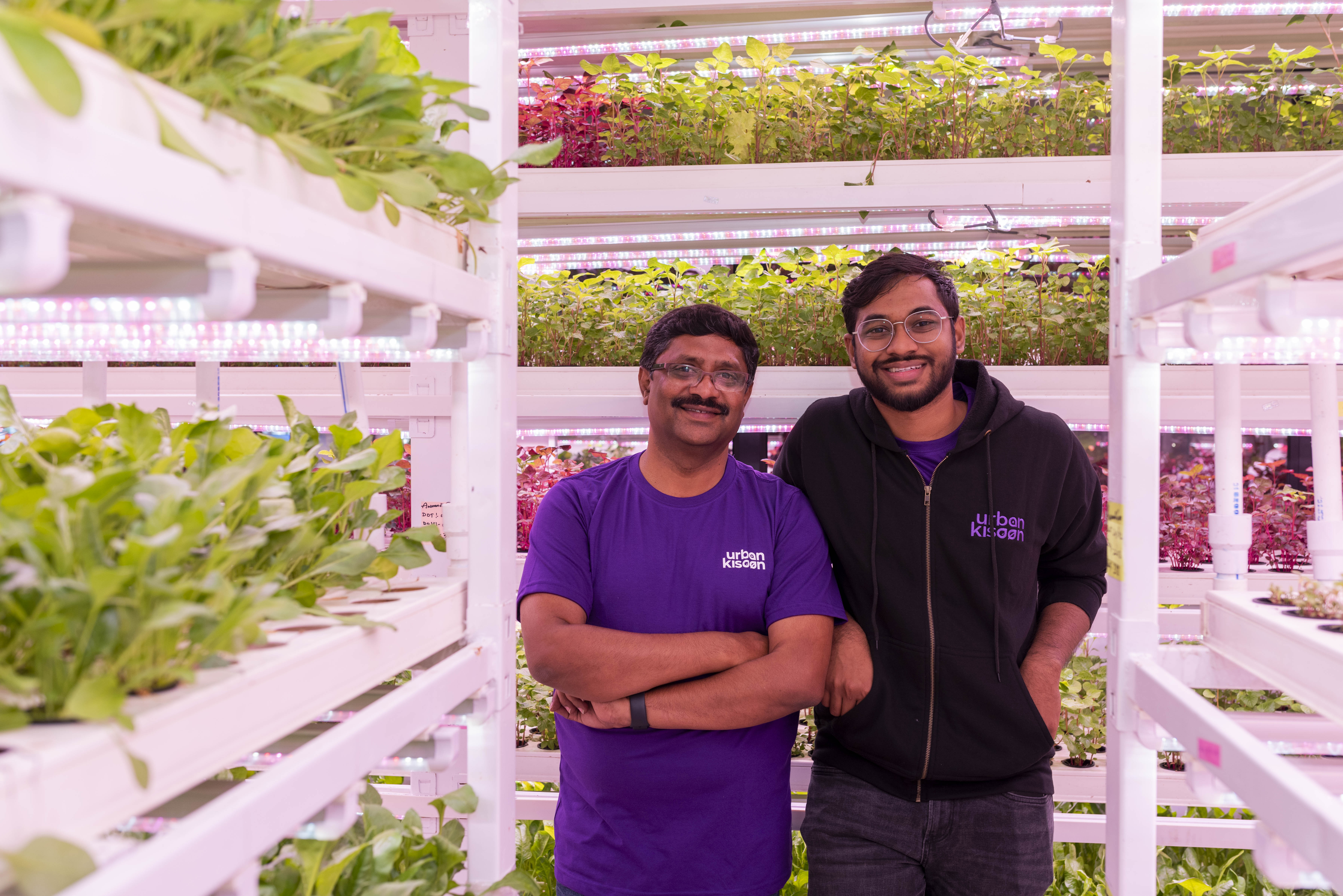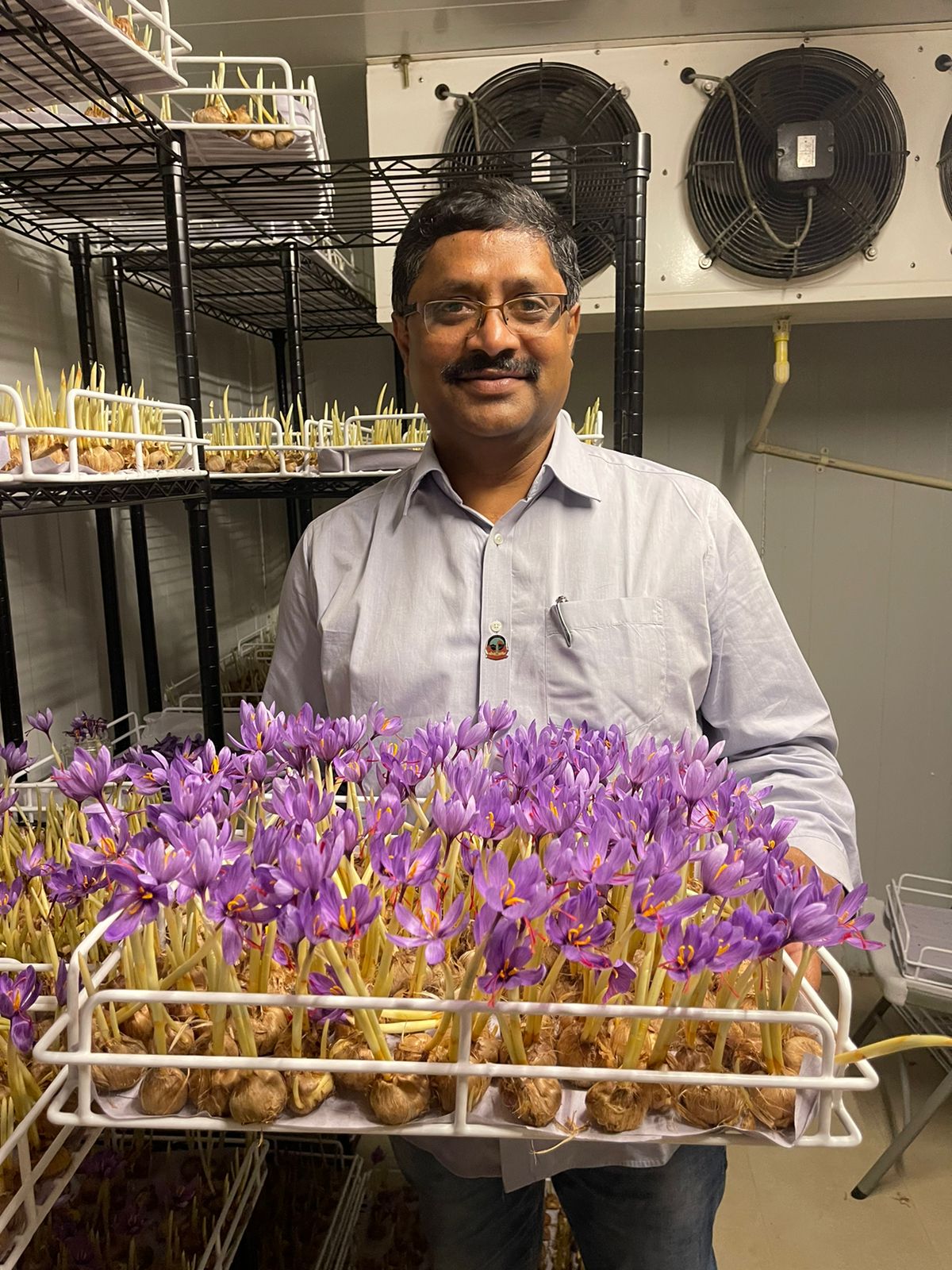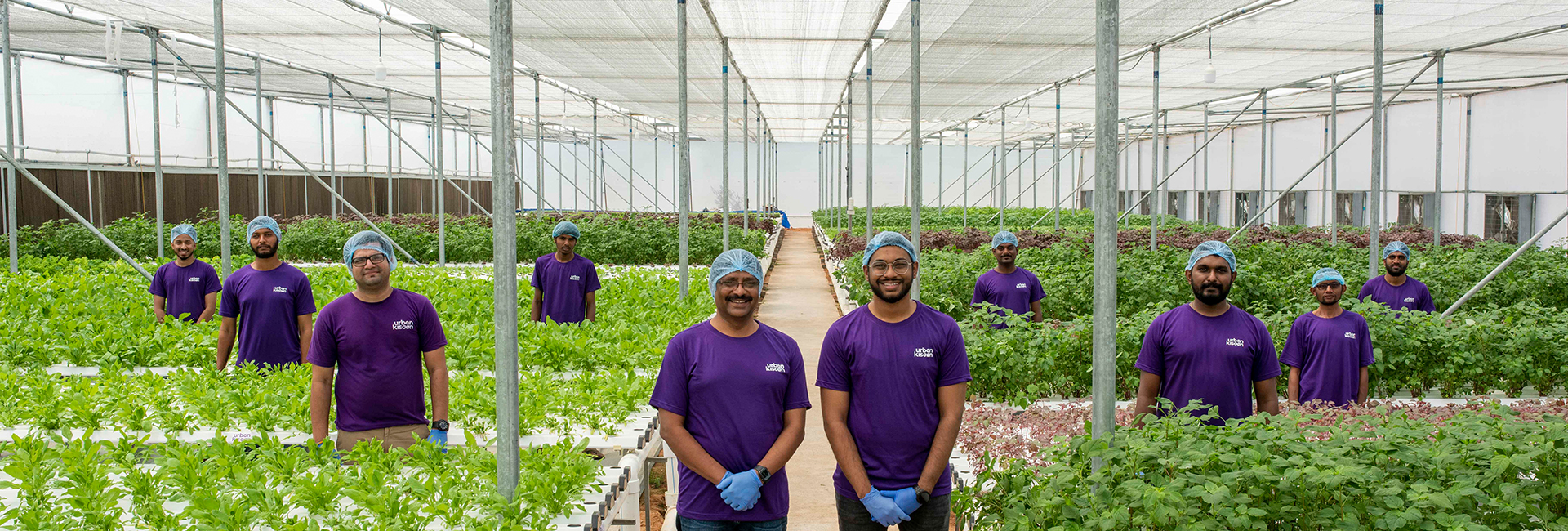(May 18, 2023) In an era characterised by deteriorating soil conditions and environmentally damaging farming methods, we find consumers bearing the brunt. Sadhguru, the founder of the Isha Foundation, advocates for soil preservation through the global Save Soil movement, a critical step in averting an environmental catastrophe. Concurrently, Vihari Kanukollu, an entrepreneur from Hyderabad, explores innovative solutions through his vertical farming startup. As a Forbes 30 Under 30 honoree in 2020, he co-established Urban Kisaan, a venture specialising in indoor vertical farming of pesticide-free crops that are subsequently sold to subscribers and walk-in customers.

“Social issues have always been on my mind. I read a report that by 2050, we will have 50 percent less food required to sustain lives. The same report also predicted that there will be 30 percent less water supply and 20 percent less land fit for cultivation. I wanted to find a smart solution,” shares the entrepreneur during a discussion with Global Indian. Driven by these alarming statistics, he felt compelled to devise an intelligent solution. Notably, Urban Kisaan recently made headlines in the agricultural community by successfully cultivating a pilot crop of Kashmiri saffron in Telangana for the first time.
An early entrepreneur
Raised in Chennai, in a household that valued education, Vihari shares that he was always an entrepreneurial child. His mother was a homemaker, and his father was an employee at Tech Mahindra. I was mostly a backbencher in school and college. More interested in sports (basketball), I would find ways to leave class. However, I was a good student and got good grades,” says Forbes 30 Under 30.
The entrepreneur pursued a degree in commerce alongside his chartered accountancy studies. It was during this period that he conceived his first startup – PayMyGST, an online platform providing SaaS solutions for GST return filings. “During a class on indirect taxes, news that value-added tax (VAT) will be replaced by a goods and services tax (GST) came in. Realising that the current taxation process was going to change, and studying VAT was redundant, I decided to leave CA and pursue this instead. So, at 22, I shifted to Hyderabad to start up,” shares the entrepreneur, who collaborated with his uncle. When the government of India initiated a free GST platform, they were forced to shut down a successful venture.
The hydroponics path
Inclined towards spirituality, Vihari frequented the heartfulness centre in Hyderabad for meditation sessions. During his quest for a mentor, he encountered Dr. Sairam, a scientist, whom he visited weekly. It was during one such visit that he observed Dr. Sairam cultivating plants without soil.
“I noticed that he was growing something in a plastic box. When I asked, he explained that it was a hydroponic plant. I was shocked as it wasn’t something I had ever come across,” says the young entrepreneur. The idea intrigued him so much that at every session, he explored the topic further. “Everyone should be able to grow vegetables. That is how Urban Kisaan started,” he adds.


Although they were not financially backed, Vihari saw an opportunity to present this concept at an annual event held at the meditation center. “I took one of the plastic boxes with a plant from Dr. Sairam’s balcony and showed it to people at the exhibition. I pitched it to everyone who came to my stall, saying that this is the next-gen agriculture option, for those who want to grow their food. I was able to get about 100 orders of the home kit containing pots, seeds of leafy greens, and the electrical requirements,” laughs the entrepreneur, who was able to raise ₹15 lakh in a single day, selling each kit for ₹15,000 … “And, we had our capital,” he laughs. Searching for an urban farming location accessible to walk-in customers, “We rented a rooftop in a posh locality in Hyderabad and started the farm,” shares the entrepreneur.
Endless possibilities ahead
A remarkable achievement of the vertical farming startup was the successful cultivation of Kashmiri saffron in Telangana for the first time. The trial farming of this spice yielded promising results. “After our farm was set, we wanted to explore what more can be done. Dr. Sairam and I went on a long journey, where we connected with farmers from across the country,” says the entrepreneur. As an environmentalist, this trip was a revelation for him. “Being a passionate environmental activist, I’ve spoken extensively about the detrimental impacts of climate change. Witnessing the very damages I’d discussed and read about was a profound experience in Kashmir, where farmers lamented about their dwindling annual saffron yields,” he reveals.


In August 2021, Urban Kisaan collaborated with these farmers and procured saffron seeds. “We created the required temperature, and Co2 conditions to replicate Kashmir’s climate to grow the flower from which the saffron strands are derived. We were able to grow A-grade quality (topmost) saffron,” says the entrepreneur, who is currently developing a digital marketplace for farmers nationwide to sell their produce. “There’s still a great deal of work ahead of me. We’ve recently launched a cloud kitchen that offers salads made from fresh organic produce. I find meditation helps me clear my mind and maintain focus,” shares the newly-married entrepreneur.
- Follow Vihari Kanukollu on Twitter, Instagram, LinkedIn, and Crunchbase




